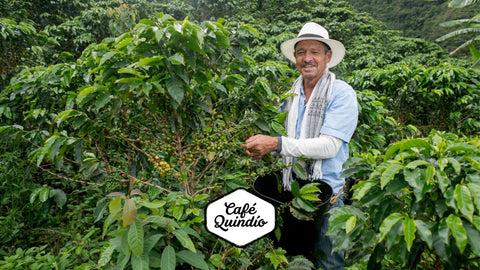Imagine biting into a bar of chocolate and tasting not just the richness of cocoa but also the sweetness of social justice. The idea of fair trade is simple yet profound: it's about ensuring that the people behind our food are treated well and paid fairly. Chocolate, a universal symbol of indulgence, has a bitter history of exploitation, making the fair trade movement crucial in this industry.
Fair trading principles are transforming the lives of cocoa farmers worldwide, providing them not just with fair wages but also sustainability. From the parched fields of Côte d’Ivoire to the lush landscapes of the Dominican Republic, the fair trade emblem on chocolate bars directly contributes to enhancing livelihoods and community development. In the following article, we delve into the heart of fair trade chocolate, exploring its impact, the organizations driving the movement, and the challenges they face as they seek to sweeten the deal for everyone involved.
What Is Fair Trade?
At its core, fair trade is a system of trade that focuses on creating more equitable and sustainable relationships between farmers and consumers. It sets standards and guidelines to ensure that farmers and workers receive fair wages, work in safe conditions, and have access to education and healthcare. In the context of chocolate, it aims to address the exploitation and poverty that has plagued cocoa farmers for decades. By supporting a balanced trade, consumers actively participate in a movement that benefits cocoa farmers and their communities in various ways.
Fair Trade is an equitable and ethical trading model that ensures cocoa farmers receive a fair wage for their labor or a fair price for their harvest. This approach is a response to the often volatile market prices in the cocoa sector, protecting small-scale farmers from exploitation. Unlike conventional chocolate, which may not always prioritize laborers’ welfare, Fair Trade chocolate fosters fair wage practices and supports community development projects.
Adhering to rigorous standards set by organizations like Fairtrade International, guarantees that farmers are paid at least 15% more than the conventional market rate for their organic cocoa. Moreover, it assures additional premium payments that farmers can invest back into their businesses and community services, such as education and healthcare. This ethical sourcing model also promotes safe, eco-friendly working conditions and cultivates a symbiotic relationship with cocoa producers, evident in products sourced from places like the Dominican Republic.
Ultimately, a balance of trade champions the dignity of cocoa farmers by providing a stable income, and contributing to the overall well-being of their communities.
The Importance Of Fair Trade In The Cocoa Sector
The global demand for chocolate is longstanding and ever-growing, but behind the sweetness lies a bitter reality—the exploitation within the cocoa sector. Balanced trade is important in the cocoa industry as it not only seeks to ensure fair compensation for cocoa farmers through the implementation of fair minimum prices but also empowers producers with the Fairtrade Premium to catalyze growth and development in their communities.
By choosing Fair Trade chocolate, consumers wield the power to alter the underpinning dynamics of the cocoa supply chains, ensuring dignity and prosperity for the individuals at the base of the chocolate industry.
Ensuring Fair Wages For Cocoa Farmers
Cocoa farmers working within the fair trade framework are safeguarded by a dual financial safety net: they receive either the market price or the fair trade minimum price, depending on which is higher. This structure guarantees fair compensation which translates to more reliable income streams in an otherwise fluctuating market. In a significant move, Fairtrade International increased the price for Fairtrade cocoa to USD 2,400 per metric ton, reinforcing the commitment to the well-being of cocoa farmers.
Consistent and fair wages are pivot points for the sector's future; they help retain the youth in farming, thereby promoting the sustainability of the cocoa industry. Stabilizing the farmers' income also bolsters their capacity to advance and plan ahead. The substantiality that fair wages add to lives makes it essential for poverty alleviation and the eradication of illegal labor practices.
Improving Living And Working Conditions For Farmers
One pillar of the Fair Trade model is the reinvestment of premiums in community development, directly elevating the living standards of cocoa farmers. The measure ensures that a part of the revenue generated secures not just better living conditions but an overall amelioration of working environments. Farmers, thus incentivized, are motivated to adopt and sharpen their agricultural practices, thereby boosting both yield and quality.
Eco-conscious techniques, such as regenerative organic farming that includes mulching and cover cropping, get ample space to flourish culminating in enriched soils and more resilient crops. This emphasis on sustainable methods is a testament to fostering long-term ecological and farmer welfare.
Supporting Sustainable Community Development Projects
Cocoa cooperatives in regions like West Africa and Latin America have seen tangible benefits from additional funds, which have fortified the communities with better healthcare, education, and women's empowerment. Engaging with fair trade is tantamount to backing these farming communities to gain the skills needed to navigate and benefit from the free market while being mindful environmental custodians. Thus, supporting fair trade chocolate does more than satisfy a sweet tooth—it supports fulfilling lives and sustainable futures.
The Role Of Fair Trade Organizations In The Chocolate Industry
To be certified as fair trade and to benefit from these premiums, a group, farm, or organization must undergo rigorous inspections by third-party auditors to meet the standards set by fair trade certification bodies. Organizations like Fairtrade International and Rainforest Alliance are instrumental in these processes. Notably, Fairtrade International has guaranteed premiums for cocoa that are more than three times higher than those offered by the Rainforest Alliance, showcasing the potential for impactful economic assistance to cocoa farmers.
GEPA: The Fair Trade Company
As one of the pioneers in the Fair Trade movement, GEPA - The Fair Trade Company, stands out for its dedication to transforming trade to embrace justice and fairness. It is the largest alternative trade organization in Europe. The abbreviation GEPA stands for "Gesellschaft zur Förderung der Partnerschaft mit der Dritten Welt mbH“, literally meaning "Society for the Promotion of Partnership with the Third World".
GEPA's trading partners consist of 131 cooperatives, marketing associations, and dedicated private businesses in 45 countries across Africa, Latin America, Asia, and Europe. The partnerships are characterized by fair business dealings over an extended period of time, dependable and long-standing cooperation, and openness at every stage of their supply chains.
Fairtrade International: Promoting Fair Trade Cocoa
Fairtrade International plays a pivotal role in shielding cocoa farmers from the volatility of the global market. Since establishing the international standard in 2011, Fairtrade International has guaranteed that cocoa farmers receive a Fairtrade minimum price per metric ton. This fixed price acts as a safety net against fluctuating market costs, providing farmers with crucial financial security.
With fair trade certification, farmers are assured to receive either the market price or the fair trade minimum, turning into a higher level of financial stability for them and their families. Such measures not only contribute to a better quality of life but also underpin the sustainability of cocoa farming communities. Purchasing Fairtrade-certified cocoa translates into direct support for these farmers, enabling them to undertake future planning and ensure a consistent income stream. Fairtrade International's impact on the cocoa sector is monumental, offering consumers the means to participate in ethical trade and influence the market towards a fairer model.
By prioritizing fair wages and sustainable practices through fair trade certification, Fairtrade International not only improves the livelihoods of those within the cocoa supply chains but also fosters a chocolate industry where fairness and responsibility are the cornerstones of every chocolate product.
Examples Of Fair Trade Projects
Fairtrade initiatives in the chocolate industry go beyond ensuring fair wages; they profoundly impact community welfare and environmental stewardship.
COOPROAGRO Dominican Republic
COOPROAGRO, based in the Dominican Republic, is a shining example of a beneficiary of fair trade's comprehensive approach to community upliftment. This cooperative, certified by Fair Trade USA, has received a portion of the USD1.25 million directed towards community development projects, which has significantly enhanced the quality of life for its members. These funds have fostered improvements in healthcare, education, and women's support, alongside fortifying environmental conservation efforts.
The organic cocoa produced by COOPROAGRO not only adheres to stringent agricultural standards but also plays a part in a broader social responsibility narrative. By opting for COOPROAGRO's organic cocoa, consumers and businesses alike contribute to an economic model that prizes human well-being and environmental care at its core, furthering positive change within the cocoa farming landscapes of the Dominican Republic.
São Tome
GEPA'S commitment to fair and ethical production is exemplified by its cacao sourced from farmer cooperatives in São Tomé and Ghana. São Tomé, often called the "chocolate island," contributes its organic cocoa to GEPA's organic products. Notably, GEPA emphasizes the empowerment of women farmers, with a focus on educational and mentorship programs that foster an inclusive and nurturing agricultural community.
By supporting these countries, GEPA not only provides consumers with high-quality organic chocolate but also champions a business model where profits are shared equitably, thereby inspiring a wave of social and economic development within these vibrant cocoa-growing communities.
The Challenges In The Fair Trade Chocolate Industry
Despite the increased consumer awareness and a growing demand for responsible sourcing, the fair trade chocolate segment faces significant challenges. Shockingly, fair trade cocoa co-ops represent a mere 0.1% of the global chocolate market, earning USD 17.7 million from the fair trade premiums that are meant to uplift cocoa farmers. This figure, while meaningful in the context of fair trade, is dwarfed by the earnings from conventional chocolate, which dominates the industry with a substantially larger share.
The market for fair trade chocolate is expanding, but the presence of conventional cocoa often overshadows the ethical alternative. Conventional cocoa typically does not ensure fair wages or safe working conditions for farmers, which perpetuates longstanding issues in the industry. Many consumers remain unaware or indifferent to the stark differences in production standards, which hinders the growth of this market segment.
Farmers, who are dedicated to sustainable cocoa production, are compensated with a fair wage for their efforts. However, the reality is that an imbalance exists between the supply of and demand for fair-trade chocolate, leading to instances where fair-trade chocolate remains unsold. Global consumers need to increase their demand for fair trade products if a significant and positive shift towards ethical and sustainable practices in the chocolate industry is expected.
Issues such as deforestation, poverty, child labor, and slave labor are historically linked to chocolate production, and a balanced trade plays a vital role in combating these problems. The challenges faced by the chocolate industry must be addressed by enhanced consumer awareness and demand, leading to a more equitable and socially responsible chocolate sector.
Conclusion
In conclusion, fair trade chocolate offers a path to enjoying the richness of cocoa while also contributing towards social justice and sustainability. The fair trade movement has transformed the livelihoods of cocoa farmers globally, ensuring that they are treated fairly and paid equitably for their hard work. By purchasing fair trade chocolate, consumers can take an active role in supporting this movement and promoting ethical practices in the chocolate industry.
While there are still challenges that need to be addressed, such as ensuring that fair trade practices are implemented consistently across the industry, the movement represents an important step towards creating a more equitable and sustainable world. By celebrating the rich stories and flavors behind fair trade chocolate, we are not just indulging in a sweet treat but also contributing towards a greater cause.
Like it? Share it!




